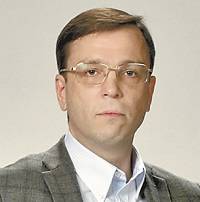Finance Minister Anton Siluanov and Chairman of the Bank of Russia Elvira Nabiullina disagreed on the exchange rate of the national currency. According to the minister, the unprecedented strengthening of the ruble is too expensive for the state treasury, so it needs to be weakened. The head of the Central Bank, on the contrary, believes that attempts to return the “old rate” will make it artificial or result in devaluation.
Subject: Banks and the financial crisis
The Ministry of Finance is ready to begin interventions in the foreign exchange market to stabilize the ruble, said Siluanov at the congress of the Russian Union of Industrialists and Entrepreneurs. According to an official, strengthening exchange rate for 1 ruble against the dollar costs the Russian budget 130–200 billion rubles in losses: “That is, 10 rubles of the exchange rate is more than a trillion rubles”. He did not rule out that the government would donate part of the planned expenditures, and direct the excess profits from the sale of energy resources to foreign exchange interventions. We are talking about investments in the “currency of friendly countries.” “I see that this is only the last measure of heavy artillery left”Siluanov concluded.
Nabiullina also advocated maintaining a floating exchange rate, which is determined by the market and, according to her, allows the economy adapt to current realities. But attempts to return it to the values that were “under the old conditions” will lead to the fact that it will become artificial. “Or then there will be a sharp devaluation, as we have already experienced”she warned. In addition, when managing the exchange rate, Russia will have to synchronize monetary policy with “foreign countries”, where now “inflation is at a forty-year high.” The result will be “import of this inflation,” the head of the Central Bank believes.
The head of the Ministry of Economic Development also spoke out against the idea of the Ministry of Finance Maxim Reshetnikov. In his opinion, spending rubles on the purchase of foreign currencies will rather worsen the situation, because “in the face of a lack of demand, a reduction in budget spending will have an even more negative impact on the economy.” At the same time, he also spoke earlier about the risks of a too strong ruble, noting that so far the problems are being contained “due to extremely high export prices.”
Nikita Krichevsky, economist
Nikita Krichevsky, economist
– State budget revenues suffer from the high exchange rate of the ruble, so we see how the Ministry of Finance comes up with initiatives. The area of responsibility of the Central Bank is different, the regulator is concerned about inflation, so it is difficult for them to agree. If this does not happen, the problem can be moved to a higher level. The decision on the problem of the ruble exchange rate can be taken by the president, since now all the key points in the financial market are under the jurisdiction of the head of state. What this decision is is still unknown, but it can be made any day.
Konstantin Selyanin, economist
Konstantin Selyanin, economist
– Exporters lose from a strong ruble. They bear expenses in rubles, and their earnings are in foreign currency. For many, this is critical. But the main loser is the budget. The taxes paid by exporters are about half of the budget revenues, if we take not only export enterprises, but also those that serve them. Income tax depends on the profits of exporters: if they receive less rubles, then they pay less tax. The weaker the ruble, the more they pay taxes.
Mikhail Belyaev, economist
Mikhail Belyaev, economist
Problems must be solved either by increasing imports or by reducing exports. Which is exactly what will happen in the coming months. Exports will be reduced due to sanctions, because they do not work instantly. It is clear that pressure will be put on India and China to reduce the volume of energy resources purchased from Russia. At the same time, imports will also grow, it is unlikely that they will reach their previous values, but there will still be some growth.
- Text composed based on materials from the Internet. Our sources are the largest online publications and social services, including those that post information about both events and information (including compromising evidence, scandals) about politicians, civil servants and businessmen, their biographies, information about their activities and the activities of controlled them organizations. Confirmation of all the materials posted by us can be found on the net.
- We invite all interested parties to cooperate. More in the section ABOUT THE SITE.












